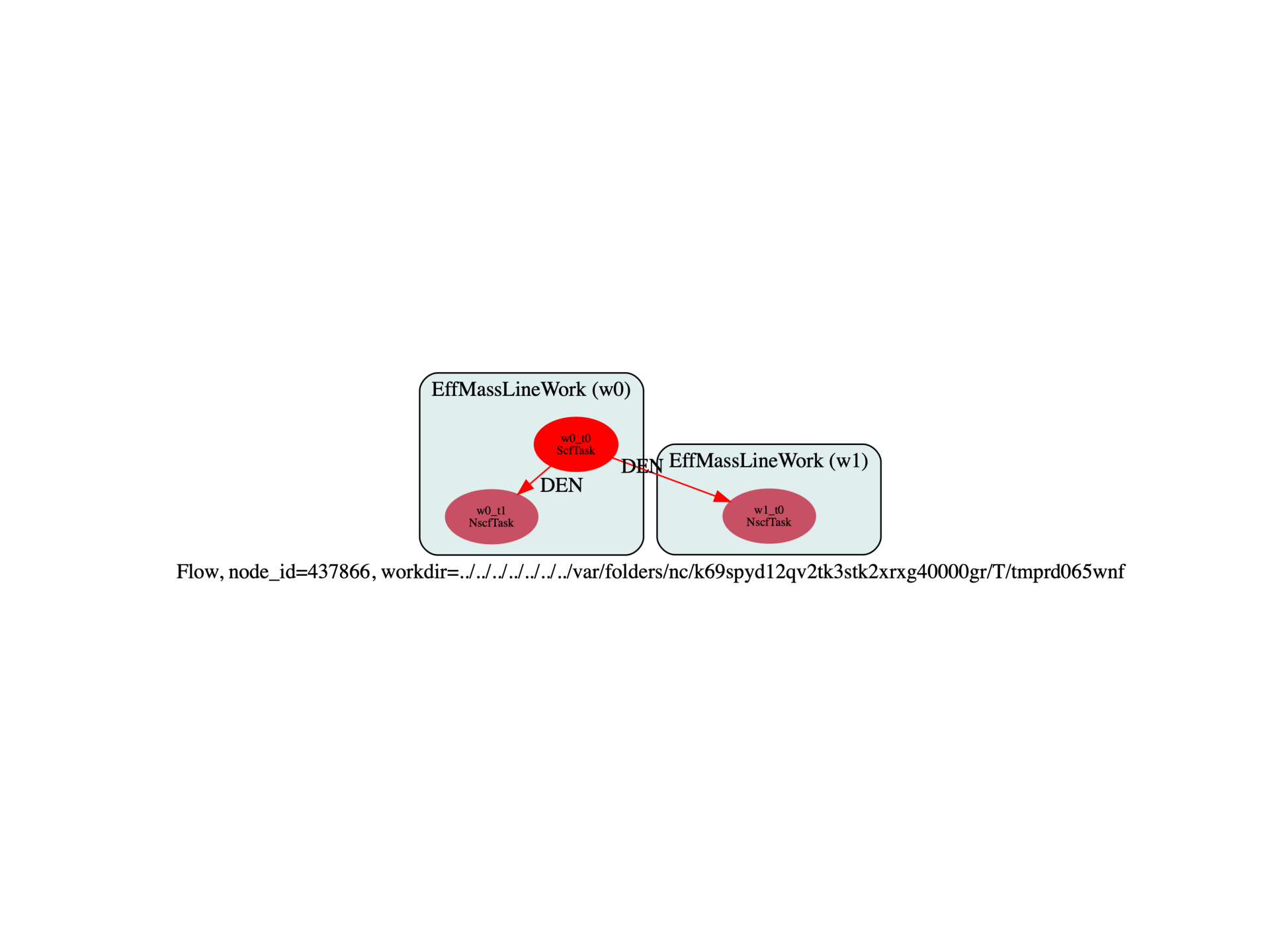Note
Go to the end to download the full example code.
Effective masses with finite difference
Flow to compute effective masses with finite difference methods. Derivatives are computed along lines in k-space.
import sys
import os
import abipy.data as abidata
import abipy.abilab as abilab
import abipy.flowtk as flowtk
def make_scf_input(nspinor=1, usepaw=0):
"""Returns GS input file for Silicon"""
if nspinor == 1:
pseudos = abidata.pseudos("14si.pspnc") if usepaw == 0 else abidata.pseudos("Si.GGA_PBE-JTH-paw.xml")
else:
pseudos = abidata.pseudos("Si_r.psp8") if usepaw == 0 else abidata.pseudos("Si.GGA_PBE-JTH-paw.xml")
structure = dict(
ntypat=1,
natom=2,
typat=[1, 1],
znucl=14,
#acell=3 * [10.26310667319252], # https://docs.abinit.org/tests/v7/Input/t82.in
acell=3 * [10.2073557], # 5.4015 Ang
rprim=[[0.0, 0.5, 0.5],
[0.5, 0.0, 0.5],
[0.5, 0.5, 0.0]],
xred=[ [0.0 , 0.0 , 0.0],
[0.25, 0.25, 0.25]],
)
# Build input
scf_input = abilab.AbinitInput(structure=structure, pseudos=pseudos)
# Set variables
scf_input.set_vars(
ecut=12,
nband=8 if nspinor == 1 else 16,
nspinor=nspinor,
tolvrs=1e-8,
)
if scf_input.ispaw:
scf_input.set_vars(pawecutdg=2 * scf_input["ecut"])
scf_input.set_kmesh(ngkpt=[8, 8, 8], shiftk=[0, 0, 0])
return scf_input
def build_flow(options):
# Set working directory (default is the name of the script with '.py' removed and "run_" replaced by "flow_")
if not options.workdir:
options.workdir = os.path.basename(sys.argv[0]).replace(".py", "").replace("run_", "flow_")
# Get the SCF input (here NC with SOC)
scf_input = make_scf_input(nspinor=2, usepaw=0)
# Build the flow with different steps.
from abipy.flowtk.effmass_works import EffMassLineWork
flow = flowtk.Flow(workdir=options.workdir, manager=options.manager)
# Multiple calculations with different step for finite difference.
# Use ndivsm != 0 at the first iteration to compute band structure along
for i, step in enumerate((0.01, 0.005)):
if i == 0: den_node = None
work = EffMassLineWork.from_scf_input(scf_input, k0_list=(0, 0, 0),
step=step, npts=10,
red_dirs=[[1, 0, 0], [1, 1, 0]],
#cart_dirs=[[1, 0, 0], [1, 1, 1], [1, 1, 0]],
ndivsm=-20 if i == 0 else 0,
den_node=den_node)
# Will start from the DEN file produced in the first iteration.
if i == 0: den_node = work[0]
flow.register_work(work)
return flow
# This block generates the thumbnails in the Abipy gallery.
# You can safely REMOVE this part if you are using this script for production runs.
if os.getenv("READTHEDOCS", False):
__name__ = None
import tempfile
options = flowtk.build_flow_main_parser().parse_args(["-w", tempfile.mkdtemp()])
build_flow(options).graphviz_imshow()
@flowtk.flow_main
def main(options):
"""
This is our main function that will be invoked by the script.
flow_main is a decorator implementing the command line interface.
Command line args are stored in `options`.
"""
return build_flow(options)
if __name__ == "__main__":
sys.exit(main())

nspinor 2 with nspden 4 requires kptopt 4
Run the script with:
run_effmass_finitediff -s
Total running time of the script: (0 minutes 0.364 seconds)